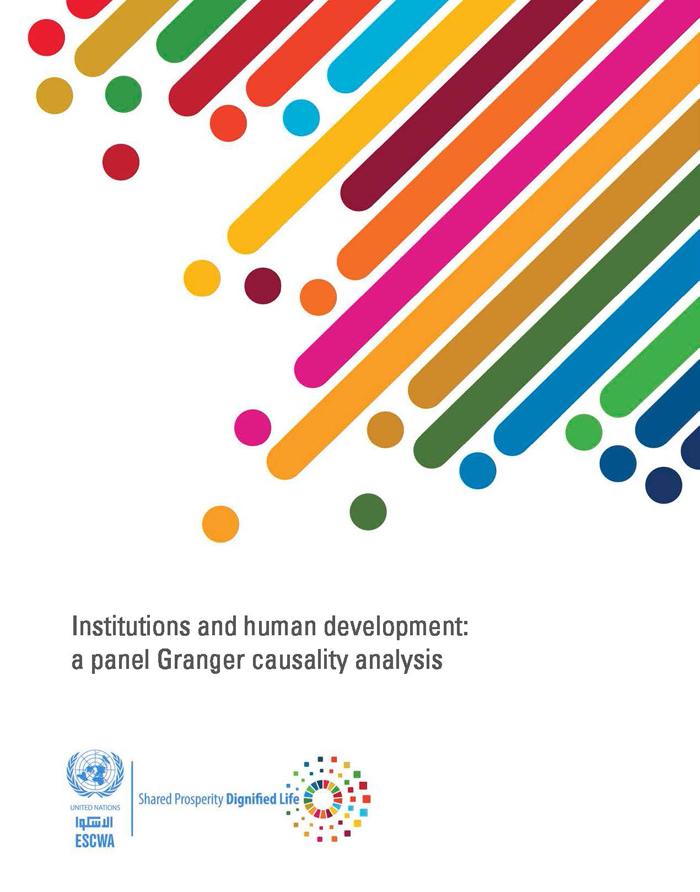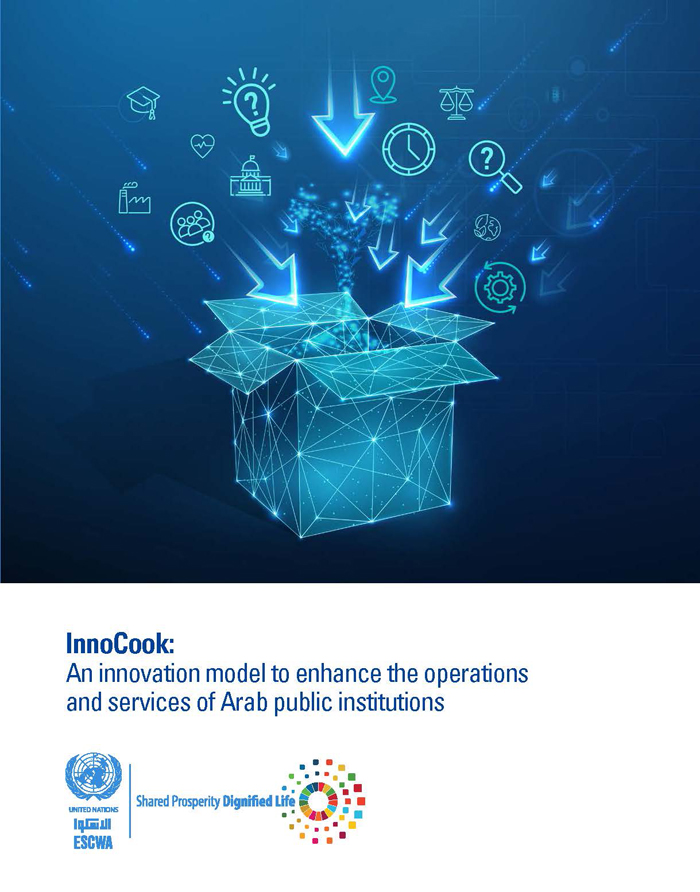
ESCWA Publication: E/ESCWA/CL6.GCP/2021/TP.3
Country: Arab region
Publication Type: Information material
Cluster: Governance and Conflict Prevention
Focus Area: Governance & enabling environment
Initiatives: Development challenges
SDGs: Goal 11: Sustainable Cities and Communities
Keywords: Human development, Economic growth, Corporations
Institutions and human development: a panel granger causality analysis
July 2021
This background paper revisits the question of causality between institutions and economic development with the notion that development is a broad concept that encompasses more than simply income growth. We use three different measures of development: Human development index (HDI), human capital and real GDP per capita and examine the causal effect between development and institutions using panel Granger causality procedure in 158 countries disaggregated by income level. We also examine whether the presence of natural resource endowments can drive this causal effect.
We find a uni-directional causality running from institutions to economic development at all stages of economic development. Different income groups, however, experience different effects depending on the employed measures of economic development. Better institutions lead to economic development in low-income countries when HDI is employed, whereas institutions are more important for economic growth in high-income countries as measured by GDP. The quality of institutions is important for middle-income countries for all aspects of economic development. Furthermore, by looking at the effect of oil endowments, we find that economic development promotes institutions in terms of better government effectiveness and rule of law in high-oil dependent countries. In low-oil dependent countries, the causal effect is reversed, with institutions leading economic development specifically voice and accountability.
Related content
Governance & enabling environment
,
This background paper revisits the question of causality between institutions and economic development with the notion that development is a broad concept that encompasses more than simply income growth. We use three different measures of development: Human development index (HDI), human capital and real GDP per capita and examine the causal effect between development and institutions using panel Granger causality procedure in 158 countries disaggregated by income level. We also examine whether the presence of natural resource endowments can drive this causal effect.
We find a uni-directional causality running from institutions to economic development at all stages of economic development. Different income groups, however, experience different effects depending on the employed measures of economic development. Better institutions lead to economic development in low-income countries when HDI is employed, whereas institutions are more important for economic growth in high-income countries as measured by GDP. The quality of institutions is important for middle-income countries for all aspects of economic development. Furthermore, by looking at the effect of oil endowments, we find that economic development promotes institutions in terms of better government effectiveness and rule of law in high-oil dependent countries. In low-oil dependent countries, the causal effect is reversed, with institutions leading economic development specifically voice and accountability.



